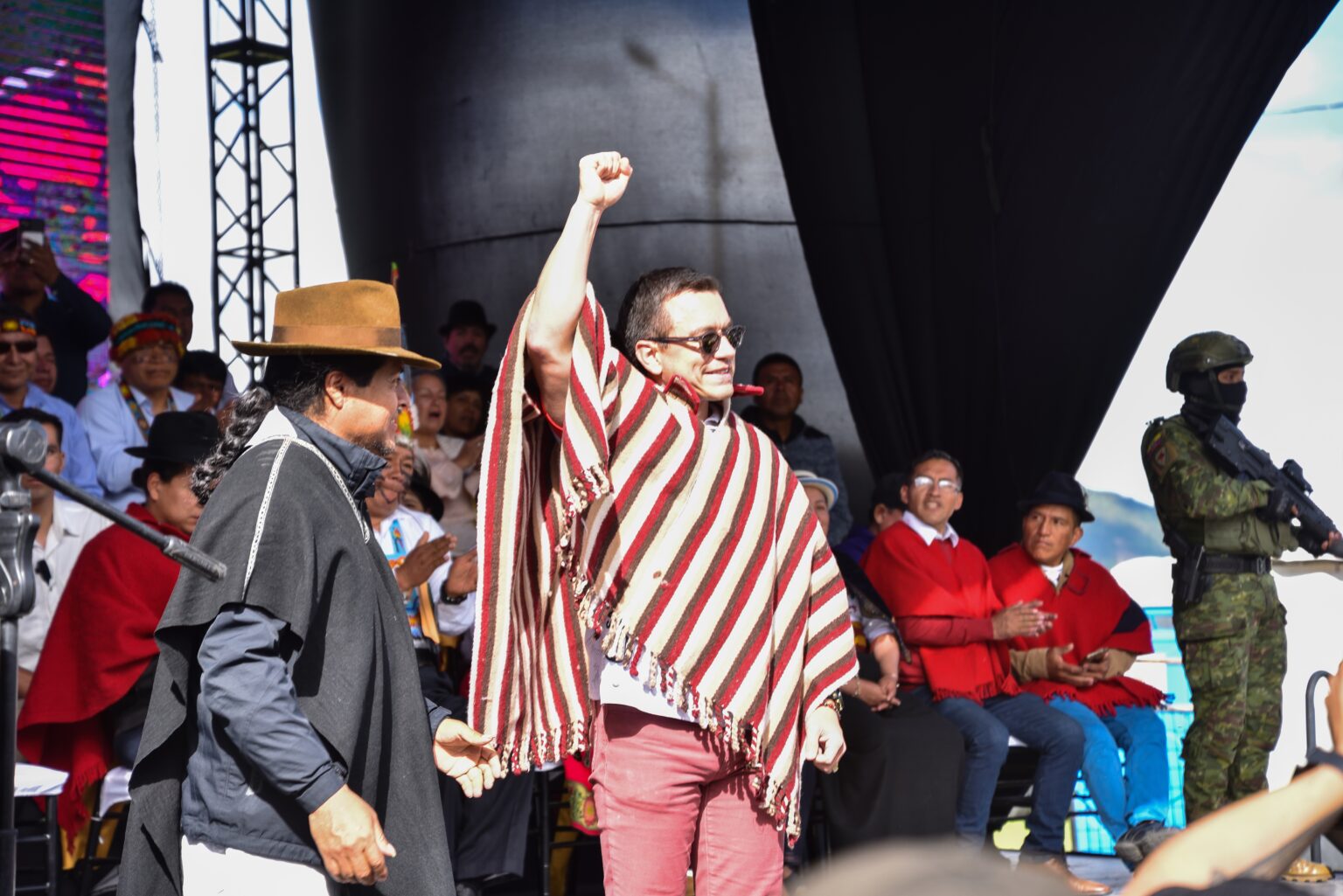A Second Term with Bigger Ambitions
Daniel Noboa, the 37-year-old businessman-turned-president, has secured a full four-year term in Ecuador’s highest office after defeating leftist opponent Luisa González for the second time. Noboa first stunned the country by winning a snap election in 2023, securing a short 16-month presidency with limited political experience and virtually no party infrastructure. His reelection in 2025 now solidifies his transition from political outsider to a central figure in Ecuador’s evolving leadership.
The recent victory gives Noboa a broader mandate to pursue his agenda—particularly his uncompromising strategies to combat crime. These policies, while popular among some sectors of the public, have raised concerns over legality, democratic norms, and civil liberties.
“Ecuador wants to be different… it wants to move forward,” Noboa declared after the National Electoral Council confirmed an irreversible lead, with final figures showing him securing 55.8% of the vote against González’s 44%.
Noboa’s Rise to Power and Background
Born into one of Ecuador’s wealthiest families, Daniel Noboa is heir to a banana-exporting empire built by his father, Álvaro Noboa, a perennial presidential candidate. Daniel launched his first business, an event organizing company, at the age of 18, before taking on management roles within Noboa Corp.
His political career began in 2021 when he was elected to Ecuador’s National Assembly and chaired its Economic Development Commission. In 2023, he entered the national spotlight after Guillermo Lasso dissolved the Assembly and called a snap election. In that contest, Noboa emerged victorious against González, a protégé of former President Rafael Correa.
Under his first term, Ecuador’s homicide rate declined from 46.18 per 100,000 people in 2023 to 38.76 in 2024, a notable drop but still significantly higher than the 6.85 rate in 2019.
A Controversial Approach to Law and Order
Noboa’s approach to public safety has drawn both praise and criticism. In January 2024, he declared a state of internal armed conflict, authorizing the military to intervene in areas where organized crime thrives, particularly prisons. This militarized strategy marked a significant departure from previous administrations and continues to polarize opinion.
One of the most controversial decisions of his tenure was ordering a police raid on the Mexican embassy in Quito to arrest former Vice President Jorge Glas. Glas, convicted of corruption, had taken refuge in the embassy for months. The incident sparked international condemnation and raised alarms about diplomatic norms and sovereignty.
Moreover, Noboa temporarily transferred presidential powers during the campaign period to Vice President Verónica Abad, as required by law. However, the two have been at odds since the beginning. Noboa sidelined Abad shortly after assuming office, appointing her as ambassador to Israel, an assignment she later described as a “forced exile.”
Public Reaction and Electoral Dynamics
Despite controversy, Noboa’s reelection points to a population increasingly concerned with security. His alignment with U.S. President Donald Trump and emphasis on migration policy also played a role. Political analyst Grace Jaramillo noted that Noboa’s close relationship with Trump appealed to Ecuadorians with relatives in the U.S., who feared that a leftist administration could worsen deportation rates.
“Showing closeness to Trump was crucial for many families,” Jaramillo explained. “It’s an issue that touches every middle- and working-class home.”
Although Noboa’s margin of victory was clear, Luisa González has rejected the results, calling them fraudulent and vowing to demand a recount. However, electoral officials insist that the results reflect a decisive and legitimate win.
Looking Ahead to his Second Term
With a full term ahead, President Noboa is expected to deepen his security agenda while navigating both domestic opposition and international scrutiny. His challenge will be to balance enforcement with democratic norms, especially as watchdogs and critics question whether his tactics undermine institutions.
At the same time, the administration is likely to continue economic reforms aimed at attracting foreign investment and stabilizing national finances, alongside new security policies that focus on dismantling drug trafficking networks and restoring order in state-run prisons.
As Ecuador enters this next chapter, all eyes will be on whether Noboa can deliver stability while maintaining the rule of law.


